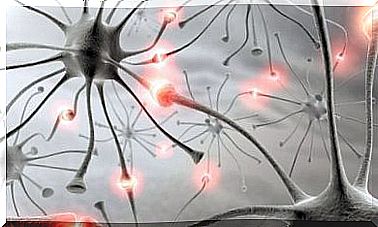Cancer Affects Emotional Health, Not Just Physical

Cancer is one of the most common diseases in the world. In 2018 alone, there were 18.1 million new diagnoses. In addition, it is estimated that the number of patients will continue to grow in the coming decades until it reaches 29.5 million new diagnoses in 2040. Here we will talk about how cancer affects the emotional health, and not just the physical health of these patients.
There are many different causes of cancer. For example, there is genetics, infections, radiation or exposure to chemical carcinogens. In addition, there are many cases due to lifestyle.
In fact, tobacco, alcohol, sedentary lifestyle, chronic stress, obesity and inadequate nutrition are factors that directly or indirectly increase the risk of developing a malignant tumor.
Like all other diseases that develop over time and have a high mortality rate, cancer affects emotional health in a very profound way.
Emotional health and cancer: How do patients respond to the diagnosis?
When faced with a diagnosis, people react in very different ways. It depends on their personality and the significance of cancer for them. According to Moorey and Greer (1989) , patients respond according to their own adaptation style. The five most common are:
- Fighting. The person takes a proactive attitude to the disease, seeks information and becomes involved in the treatment.
- Denial. The patient does not talk about the problem, and behaves as if they do not have it.
- Fatalism. The patient puts himself in a worst case scenario, whether they have objective data to support it or not.
- Desperation. The patient has superfluous negative thoughts that promote a depressive image.
- Anxiety. The patient has difficulty dealing with the uncertainty caused by the disease.

Do the patient’s feelings change over time?
Just as patients go through different phases of physical illness, so do their thoughts, emotions and feelings.
So it will be very different if the patient responds to the treatment and there is a cure or if there is partial remission. Also, if there is a relapse, if there is metastasis or if it is terminal.
Therefore, the patient’s personality plus the cancer stage will determine how they adapt.
Anxiety and depression in cancer patients
Anxiety and depression are the most common psychological reactions in cancer patients.
Emotional health and cancer: Depression
According to various studies, the incidence of depression can vary between 4% and 58% of patients, depending on the population studied and the stage the patients are in.
The average is around 40%, a very high percentage compared to the general population.
A depressive episode may make the symptoms more difficult to control, and the patient may also refuse treatment more often.
For this reason, it is important that people around them are familiar with depressive symptoms. They also need to communicate with the psycho-oncologist or the person providing emotional support to the patient.

Emotional health: Anxiety
Cancer can cause many situations where patients feel nervous and even an intense fear. Some of the most common causes are, for example:
- Reactive anxiety at diagnosis
- Difficulty dealing with uncertainty
- Reactivation of previous anxiety : phobia, panic attacks, generalized anxiety or post-traumatic stress disorder
- Fear of physical suffering and pain
- Feeling of loss of control
- Existential qual
- Increased anxiety from the pharmacological treatments themselves
- Suffering from the pain in the family environment
- Fear of treatments (side effects, surgery, physical and psychological consequences)
- Fear of death
Emotional support is important
The survival rate of cancer has improved in recent years for many different types. However , it is still a deadly disease for many patients.
Friends and family often focus more on the test results and biopsies, and we forget that cancer affects emotional health. Studies also show that patients can suffer very significantly.
Finally, it is important that family and friends learn to give the patient emotional support. They can take specific training, consult a therapist or with a specialist in psycho-oncology.









